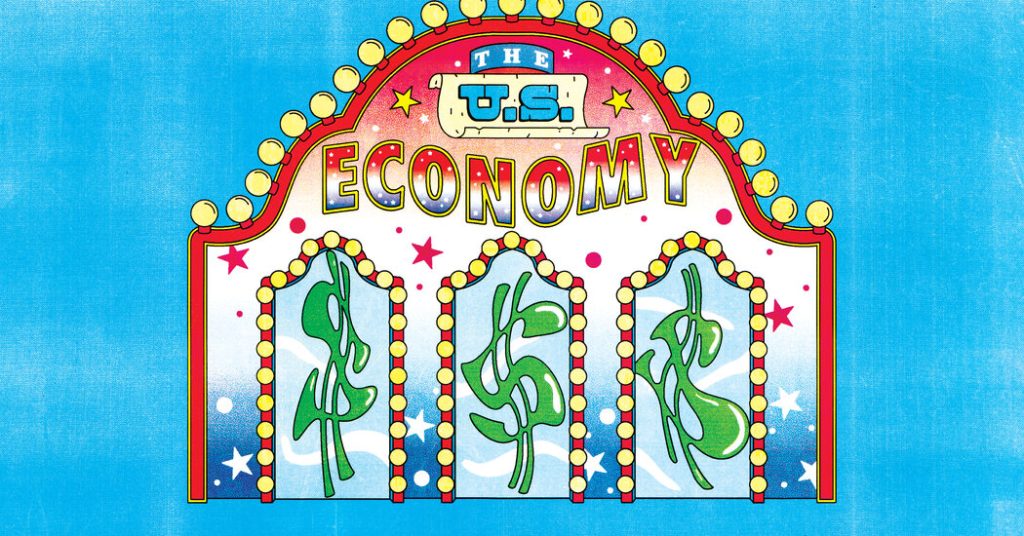The U.S. economy has been a source of confusion in recent years. Despite a booming job market and consumer spending, many Americans feel unhappy about the economy and President Biden’s economic record. This sentiment has been dubbed the “vibecession.” Various economic indicators, such as the University of Michigan consumer confidence index, have shown a negative outlook. In a recent poll, more than half of registered voters in battleground states rated the economy as “poor,” and some even believe the political and economic system needs to be torn down entirely.
One common explanation for this pessimism is the impact of inflation. While prices aren’t climbing as quickly as they were during the peak of inflation in 2021 and 2022, people are still feeling the effects of higher costs for things like rent, food, and childcare. Additionally, there are knowledge gaps among Americans about the state of the economy, with many incorrectly believing the country is in a recession or that the stock market is down from the previous year.
Some experts believe that part of the issue lies in people’s memories of more comfortable economic times. Even though the economy is growing, unemployment is low, and stock prices are rising, many individuals recall a time when prices were lower, and inflation wasn’t a concern. As a result, high prices and interest rates may feel more burdensome than they actually are, contributing to the negative sentiment towards the economy.
While inflation has been cooling, wages have not caught up to the increase in prices for many Americans. This disparity could explain the ongoing pessimism. The rising cost of housing, in particular, has made homeownership difficult for many, further contributing to feelings of economic insecurity. Additionally, interest rates set by the Federal Reserve to combat inflation may be perceived as another form of inflation by consumers, exacerbating negative sentiment.
Media negativity may also play a role in shaping public perception of the economy. Economic news coverage has become increasingly negative in recent years, which could influence how people view their own economic situations. The split screen nature of the current economy, where some individuals are doing well while others are struggling, may also fuel anxiety and uncertainty among the general population. Ultimately, the factors driving the “vibecession” are complex and multifaceted, with various economic and social dynamics at play.


